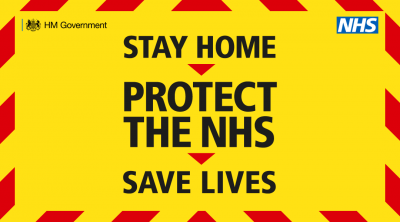Parts of NHS are under 'immense pressure', the UK's chief medical officers said this week, with the Office for National Statistics revealing that one in 50 people in England currently have the virus.
Latest figures show there were 889.7 cases of Covid-19 per 100,000 people in Wolverhampton over the 7 days to 3 January. That means 2,340 people in the city tested positive for the virus in that 7 day period – though the true number of new cases will likely be considerably higher.
There are currently around 200 patients in New Cross Hospital with Covid-19 – and that number is expected to rise in the coming weeks.
John Denley, Wolverhampton's Director of Public Health, said: "Make no mistake, the situation is serious. The new, more contagious variant of Covid-19 is leading to a massive increase in case numbers right across the country.
“Over 2,300 people in Wolverhampton tested positive for Covid-19 last week and it's no exaggeration that health services are under real pressure.
“It is down to each and every one of us to stop the spread of this virus and get the infection rate down, which in turn will ease some of the strain on the health service at a time when, as well as dealing with the pandemic, it must also be able to focus on the roll out of the Covid-19 vaccine.”
Professor David Loughton CBE, Chief Executive of the Royal Wolverhampton NHS Trust, said: “The number of people being admitted to New Cross with Covid-19 is ramping up enormously and I don't think we've seen the full impact of the contacts made over the Christmas period.
“Today's Covid-19 rate and infections in community is the order book for intensive care in 2 weeks’ time because there is usually a 2 week lag between someone getting the virus and coming into hospital.
“We have around 200 Covid-19 patients at New Cross at the moment and our capacity will soon be compromised; we can look at what is happening in the South East of England and it is reasonable to think that we are moving in the same direction in terms of numbers, and so I expect we will hit our peak in the next 14 to 21 days.
“A&E is under enormous pressure but it is important, if you are in need of health advice, that you do contact the NHS. We are asking that people continue to attend for booked appointments but before you travel to our A&E department, please call NHS 111 or go online.
“If you need to be seen in A&E they will be able to book you a time slot and that will help take pressure off the department which is dealing with critically ill patients. Help us to help you get the treatment you need.”
England was placed into national lockdown by the Government on Monday night and Mr Denley said: "Please adhere to the lockdown measures, stay home as much as possible and limit your contact with anyone who is not in your household or bubble.
“Don’t forget to practice hands, face, space by washing your hands regularly, wearing a face covering where required and staying 2m apart from anyone who isn't a member of your household or bubble.
"And, if you develop symptoms of Covid-19, make sure you immediately self-isolate and book a test as soon as you can."
Under the national lockdown, people should only leave home for limited reasons permitted in law, including shopping for basic necessities like food or medicine, for medical reasons (for example, to get a Covid-19 test or the Covid-19 vaccine), or to provide care or to help a vulnerable person, for exercise or to go to work, if they cannot work from home.
Primary and secondary schools, and colleges, are closed to all children except for vulnerable pupils and the children of key workers, and non-essential retail is closed.
Extremely clinically vulnerable people should shield again; they should stay at home as much as possible and only leave for exercise and health appointments. They should not go to work, even if they cannot work from home.
For further information, and the answers to frequently asked questions, please visit Covid Alert.
Anyone with symptoms of Covid-19, which include a fever, a new continuous cough or a change to the sense of taste or smell, must immediately self-isolate and book a PCR test by visiting GOV.UK or calling 119.
The latest information and guidance around coronavirus is available at GOV.UK and on the council’s own coronavirus pages. Further details of the lockdown restrictions currently in place, and the answers to frequently asked questions, are available at Covid Alert.
